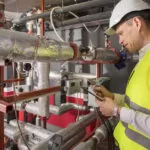As a building owner in Texas, it is crucial to comprehend the geological and geotechnical characteristics of your property. These factors play a pivotal role in the long-term stability and safety of your structure. Texas, with its vast and diverse landscape, presents unique challenges that necessitate a thorough understanding of the geological and geotechnical conditions.
Table of Contents
Geological and Geotechnical Overview
Texas boasts a diverse geological landscape, ranging from the plains of West Texas to the hills of the Hill Country and the Gulf Coastal Plain. Understanding the geological formations specific to your location is imperative for successful construction and maintenance. The soil composition, rock types, and water table levels can vary significantly, impacting the foundation and stability of your building.
In West Texas, for instance, the presence of expansive clay soils poses a challenge for construction. These soils have a tendency to shrink and swell with changes in moisture levels, potentially causing foundation issues. On the other hand, areas near the Gulf Coast may have sandy soils, which can also affect foundation stability. Conducting a comprehensive geological survey will provide valuable insights into the specific conditions of your property.

Geotechnical assessments delve deeper into the engineering properties of the soil and rocks beneath the surface. This involves evaluating factors such as soil-bearing capacity, compaction, and shear strength. In Texas, where the climate varies from arid to humid, these considerations become paramount in ensuring the structural integrity of your building.
For instance, understanding the bearing capacity of the soil is essential for determining the appropriate foundation design. In regions with expansive clay soils, engineers may recommend foundation solutions that account for potential soil movement. Similarly, coastal areas may require special attention to the impact of moisture on soil compaction.
The Importance of Site-Specific Analysis
When it comes to the geological and geotechnical aspects of your property, a one-size-fits-all approach is inadequate. Each location in Texas has its own set of challenges, and a site-specific analysis is indispensable for making informed decisions about construction, maintenance, and risk mitigation.
Customized Foundation Design
The foundation is the bedrock of any building, and its design should be tailored to the specific conditions of your property. A site-specific analysis allows engineers to determine the most suitable foundation type, be it a slab-on-grade, pier and beam, or deep foundations. Understanding the soil’s load-bearing capacity and potential for settlement ensures that your building remains structurally sound over time.
Mitigating Environmental Impact
Texas is known for its extreme weather events, from droughts to heavy rainfall and hurricanes. A site-specific analysis considers the environmental factors that can impact your property. Proper drainage systems, slope stability assessments, and stormwater management plans become integral components of the overall site design. By addressing these factors proactively, you can minimize the risk of erosion, flooding, and other environmental challenges.
Navigating Regulatory Compliance in Texas
In the Lone Star State, adherence to regulatory standards is not just a legal requirement but a fundamental aspect of responsible building ownership. Geotechnical and geological assessments are often prerequisites for obtaining necessary permits and approvals from local authorities. Understanding and complying with these regulations ensures a smooth and lawful construction process.
Local Building Codes
Texas has stringent building codes that vary across different municipalities. Familiarizing yourself with the local building codes is essential to ensure that your construction plans align with the regulatory requirements. Geotechnical and geological reports are commonly requested during the permitting process, and having a thorough understanding of these documents can expedite the approval process.
Environmental Impact Assessments
Certain regions in Texas may require environmental impact assessments as part of the regulatory process. These assessments evaluate the potential impact of construction activities on the surrounding ecosystem. Understanding the geological and geotechnical aspects of your property allows you to address environmental concerns and implement mitigation measures, demonstrating your commitment to sustainable and responsible building practices.
Implementing Long-Term Maintenance Strategies
Once your building is constructed, ongoing maintenance becomes a critical aspect of preserving its value and longevity. The geological and geotechnical conditions continue to influence the structure throughout its lifespan, making regular inspections and maintenance activities imperative.
Foundation Maintenance
Given the diverse soil types in Texas, foundation maintenance is a key consideration for building owners. Regular inspections by qualified professionals can identify early signs of foundation issues such as settlement, heaving, or cracking. Implementing preventative measures, such as proper drainage and moisture control, can significantly extend the life of your foundation and reduce the likelihood of costly repairs.
Slope Stability Management
In hilly or elevated areas, slope stability is a concern that demands ongoing attention. Erosion, soil creep, and landslides can pose threats to the stability of your building. Implementing slope stabilization measures, such as vegetation cover, retaining walls, or drainage systems, can help mitigate these risks and ensure the long-term safety of your property.
Building with Confidence in the Lone Star State
In conclusion, as a building owner in Texas, a comprehensive understanding of the geological and geotechnical aspects of your property is essential. From the initial stages of construction to ongoing maintenance, these factors influence the stability, safety, and longevity of your building. By investing in site-specific analyses, adhering to regulatory standards, and implementing long-term maintenance strategies, you can build and maintain with confidence in the dynamic landscape of the Lone Star State.




